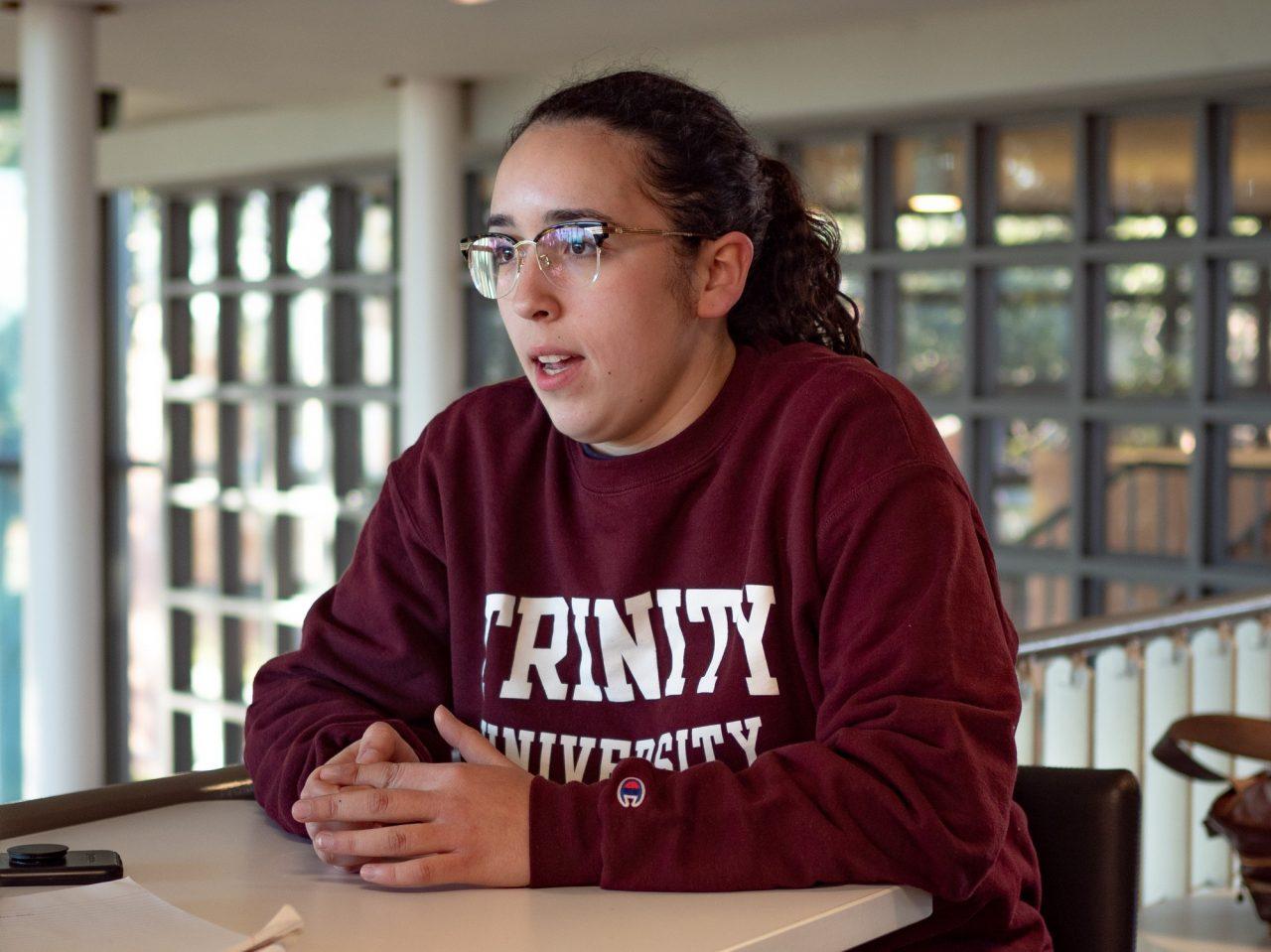Photo by Genevieve Humphreys
As she was closing in on the finish line of a mud run, sophomore Meagan Springer broke her ankle, tearing multiple ligaments. It was the middle of fall semester, and she would need two surgeries and hours of physical therapy.
The first surgery, just two days after the incident, happened to fall on the same day as an exam in Springer’s Introduction to Chemistry course.
“I knew that I had a chemistry test the same day as the scheduled surgery, so I emailed the professor, but he told me that there was no way that I would be able to make it up unless I made it up by 8 a.m. the morning after the surgery,” Springer said.
Missing the test would result in a zero for a test grade, so Springer withdrew from the course.
“[Introduction to Chemistry] is only offered in the fall, so I couldn’t just retake it the next semester. It put me behind a whole year in the pre-med sciences,” Springer said.
For students with temporary disabilities, Springer’s story might not be a surprise. Trinity’s campus alone can be difficult to navigate with a physical disability, but inaccessibility can extend into the classroom as well.
To aid those with temporary physical disabilities, Student Accessibility Services (SAS) provides Temporary Accommodation Plans (TAPs) to students with temporary impairments, whether that is a broken bone or an elongated illness like mononucleosis (colloquially known as mono). But ultimately, accommodation is up to the professor.
“There’s nothing to say that you have to grant accommodations for a temporary injury,” said Myeshia Smith, interim assistant director for SAS. “What we tell students is communicate with professors as early as you can [and] as best as you can, but in some situations, it is the professor’s discretion.”
According to Jessica Reyes, student accessibility specialist, the process of creating a TAP can only begin once students come in and request services. After students meet with SAS to create a plan, it is sent to the student’s professors and adviser.
“Once the professors receive the Temporary Accommodation Plan, it is our expectation that the professors will implement the plan and also the student will communicate and set up a meeting with the professor as to how the accommodations will be implemented,” Smith said.
Common accommodations include leniency for tardiness for someone on crutches or assigning a note-taker for someone with a broken arm. Each plan is individualized to the student and their impairment.
“We’ve had to be very creative in some planning for students to make sure that we’re meeting their needs,” Smith said. “The accommodations still have to be reasonable, and they also have to directly relate to the student’s injury.”
According to Smith, the majority of students have no issues with the implementations of their accommodations, and occasionally students and professors are able to work accommodations out without needing a Temporary Accommodation Plan.
“[Reyes] and I are really trying our best to educate professors on accommodations and accessibility services. The best way to maintain the integrity of the classroom and to best support students is if we’re all working collaboratively,” Smith said.
According to Reyes, professors have to think long-term and consider when things can realistically be done.
“[Professors are] looking at what’s the best course of action for [students], and maybe taking an incomplete this semester and then coming back to it when they’re feeling a little bit better. Because your body does need time to heal, and understanding that time is a process as well,” Reyes said.







